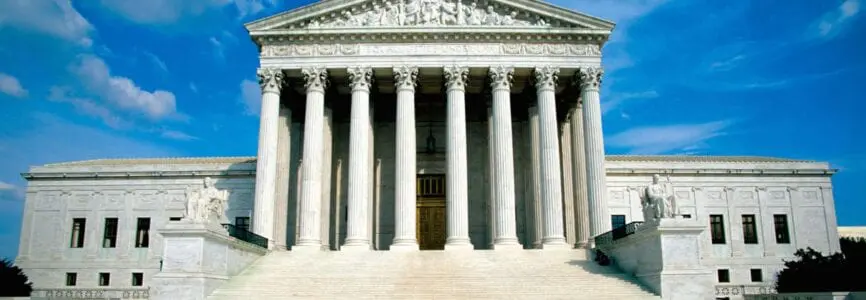Bioethics Forum Essay
Neil Gorsuch, Aid in Dying, and Roe v. Wade
In the absence of any paper trail that would give clues to Supreme Court nominee Neil Gorsuch’s views on abortion, many commentators have turned to his book, The Future of Assisted Suicide and Euthanasia, based on his doctoral dissertation at Oxford, where he worked with natural law theorist John Finnis. Ronald M. Green notes with alarm that Gorsuch relies on an inviolability-of-life principle that would likely lead him to vote to overturn Roe v. Wade. Furthermore, Green writes that Gorsuch’s conservative preference for allowing states to make their own decisions would lead to a return to the pre-Roe reality in which women would have to travel long distances for abortions in those states that allowed it.
However, there are more dire possibilities to consider. In a long and fascinating essay in Vox, J. Paul Kelleher argues that Gorsuch is not an originalist in the Scalia mold, but actually a natural law adherent like his mentor Finnis. Natural law theorists believe that there is an overarching moral law that judges can and must rely on when existing laws are unclear, or manifestly unjust. The recognition of human life as a “fundamental good” that can never be intentionally harmed, is an example of such a moral law, and one that Gorsuch relies on in his condemnation of assisted suicide.
It’s important to see that Gorsuch is not merely agreeing with the current legal status of assisted suicide in our country. In Washington v. Glucksberg, in 1997, the Supreme Court declined to follow the logic of the “privacy” cases stretching from contraception through abortion and find a constitutional right to assistance in ending one’s life. Glucksberg leaves the country, with respect to assisted suicide, in the same position in which we would be left with respect to abortion if Roe were overturned: at the mercy of the legislative wisdom of the individual states. Gorsuch goes further in arguing that the equal protection clause of the 14th Amendment forbids treating the lives of terminally ill people differently from those of the healthy, by allowing the “killing” of the first but not the second (a view often argued by philosopher Felicia Nimüe Ackerman). In other words, Gorsuch would presumably view favorably an appeal to the Court to strike down existing “death with dignity” laws in Oregon and elsewhere.
As Corey Brettschneider writes in the New York Times, all of our abortion jurisprudence rests on the assumption that embryos and fetuses are not “constitutional persons” under the 14th Amendment. Anti-abortion activists have made occasional gestures toward a constitutional amendment, declaring embryos to be constitutional persons from the moment of conception. But constitutional amendments are very hard to pass, as proponents of the Equal Rights Amendment will recall. Relying on natural law theory, John Finnis has written that fetuses deserve to be considered constitutional persons. Thus, an equal protection argument claiming that the 14th Amendment requires embryos and fetuses to be treated the same as born children might acquire some traction with Gorsuch on the Court. The result would be much worse for abortion rights than simply overturning Roe; it would criminalize abortion across the country.
Dena S. Davis, JD, PhD, Hastings Center Fellow, is the Endowed Presidential Chair in Health and a professor of bioethics and religion studies at Lehigh University. A version of this essay originally appeared on Bioethics and Other Stuff.














All is not well where assisted suicide is legal. There is documented abuse see Thomas Middleton Fed case where he was killed via the OR policy for his assets. A public policy failure.
I was my wife’s 24/7 caregiver during her last 18 months of declining autonomy.
Pitfalls in assisted suicide laws need attention. We already have the right to refuse treatment. Many who believe in the concept under the choice banner have second-thoughts org she n they read the language of the actual bill and realize our choice is Ignored and certainly not assured.
This is not about people who are dying anyway.
Amending Colorado’s Prop 106 is sorely needed (and OR,WA,CA). The initiative a monopoly and profit center was bought for $8,000,000 of deception. Even as they proclaimed that the poison must be self administered they did not provide for an ordinary witness. The difference is that without a witness it allows forced euthanasia but with a witness they would up hold individual choice.
Amendments would include requiring a witness to the self administration, restore the illegality of falsifying the death certificate require the posting of the poison applied in the medical record for the sake of good stewardship for future studies, register organ/tissue trafficking, reveal commissions and memorials paid to the corporate facilitators and keep all records for transparent public safety policy.
These Oregon model bills do not assure our choice and ignore our choice by empowering predatory corporations over us.
Bradley Williams
President
MTaas org